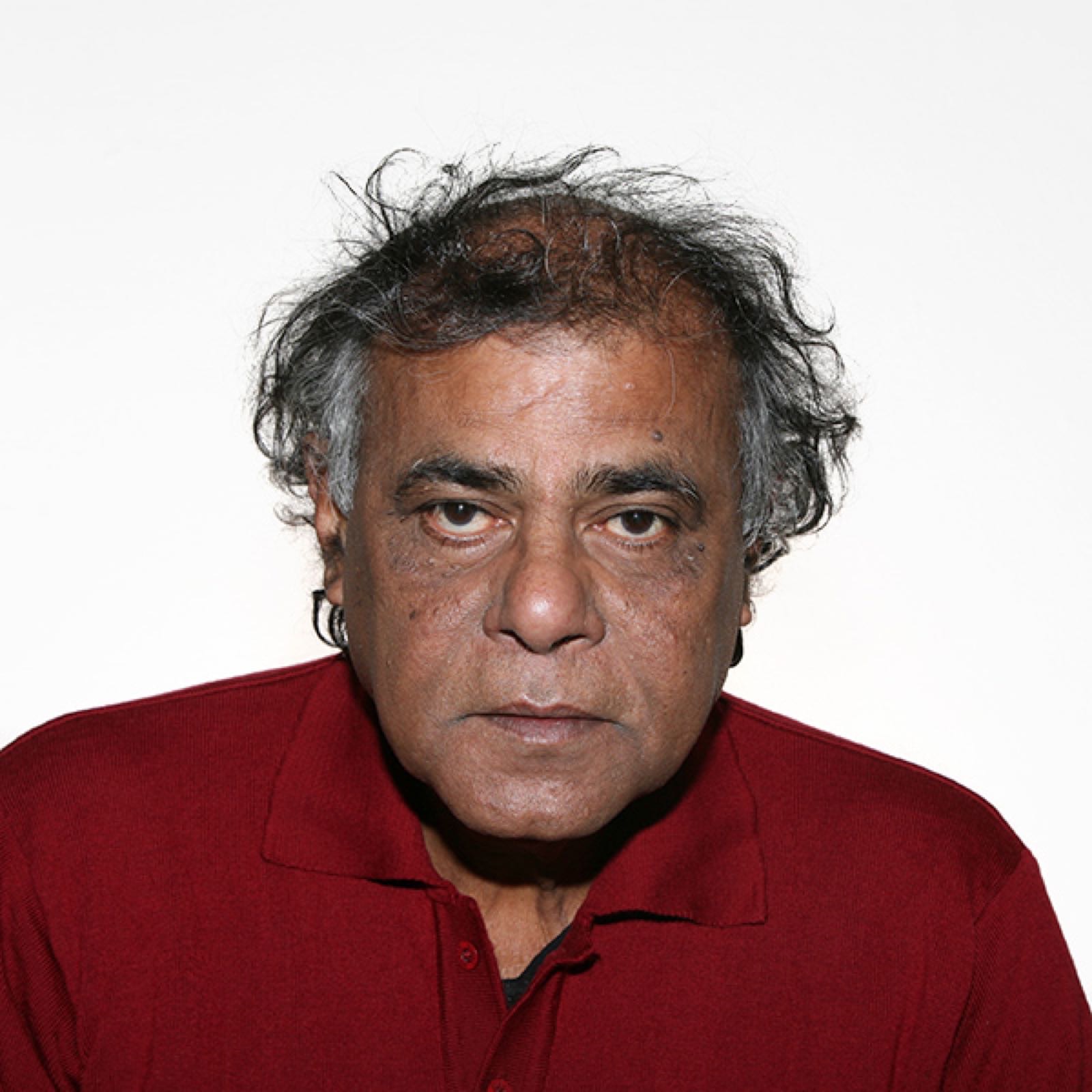卡玛鲁丁·尼禄(Kamaluddin Nilu)

卡玛鲁丁·尼禄是挪威戏剧导演和独立研究者,他的工作隶属于奥斯陆大学易卜生研究中心,他也曾是挪威研究理事会成立的易卜生跨文化项目的成员。他曾在印度海得拉巴中央大学戏剧系担任讲座教授,他也是德国柏林自由大学国际研究中心“交织表演文化”的成员。卡玛鲁丁·尼禄更是孟加拉国吉大港大学艺术系戏剧艺术副教授。他曾是印度文化关系委员会(ICCR)的成员。
卡玛鲁丁·尼禄曾担任亚洲戏剧中心(CAT)的创立总干事,也是该机构1994—2006年期间的艺术总监。2007—2012年期间,卡玛鲁丁·尼禄曾是挪威文化部建立的易卜生国际奖的评委会成员,也是易卜生国际委员会当选的董事会成员。卡玛鲁丁·尼禄曾担任2006和2009年国际易卜生戏剧节,2001年国际梵语戏剧节,及2003年孟加拉国达卡南亚戏剧节的戏剧节总监。
他曾在多个国际学术会议上发表特邀报告和论文,也曾在很多国家主持开展过大量导演及表演的工作坊和大师班,尤其是阿根廷、澳大利亚、比利时、巴西、加拿大、中国(复旦大学、南京大学、以及沈阳的东北大学)、韩国、丹麦、德国、印度、日本、墨西哥、摩洛哥、尼泊尔、挪威、巴基斯坦、斯里兰卡、瑞士、台湾、坦桑尼亚以及英国。
卡玛鲁丁·尼禄是南亚区域戏剧导演界的领军人物之一,他是挪威导演协会的成员(Norsk Sceneinstruktørforening)。他在不同国家导演过近60出戏剧作品,包括阿根廷、印度、挪威、日本及英国。他导演的戏剧作品种类多样,从古典梵剧、古希腊戏剧、莎士比亚戏剧及莫里哀,到泰戈尔写作的戏剧,以及现当代西方剧作家的作品,比如延斯·比约尔内博,贝托特·布莱希特,安东·契诃夫,亨利克·易卜生,弗郎茨·哈维·克罗茨,海纳·穆勒,以及彼得·魏斯。其中许多作品在很多国际戏剧节上演,比如孟加拉国,中国,印度,日本,尼泊尔,巴基斯坦,瑞典,以及台湾。卡玛鲁丁·尼禄因其对亨利克·易卜生戏剧作品非传统的诠释而著名。
他最新的作品《土著培尔》,对亨利克·易卜生的《培尔·金特》进行了跨文化改编,2015年由印度新德里国立戏剧学院(NSD)制作。2014年,他导演了Anika Mahin的《死神之吻》,由亚洲戏剧中心制作。2013年,他导演了艾梅·费尔南·达维德·塞泽尔的《一场暴风雨》,由海得拉巴大学S.N.学院的戏剧系制作。2013年,他导演了贝托特·布莱希特的《例外与规则》,由锡金戏剧训练中心的国立戏剧学院定目剧院制作。
卡玛鲁丁·尼禄经常在当代社会政治的框架内使用戏剧文本,而他的艺术处理转化的不同程度,他将自己的艺术表达称之为美学中的政治,他也将其描述为不完美的短暂的美。
卡玛鲁丁·尼禄在多个国际戏剧研究学刊上发表过大量研究文章,这些文章包括《易卜生玩偶之家》,发表于《易卜生研究》,2008年,8卷,2号;《记忆的坚持:拉坦·提亚姆对的处理方式》,发表于《易卜生研究》,2010年,10卷,1号;《跨文化主义的民主化进程:用民间戏剧形式在孟加拉国上演易卜生》,发表于《易卜生研究》,2014年,14卷,1号;《跨文化戏剧实践:孟加拉国易卜生戏剧的殖民遗产与身体置换、谈判与接受》,收录于弗洛德·赫兰德与朱莉·霍利奇编辑的《文化之间的易卜生》一书。2018年5月,他将于《新剧场季刊》发表论文《变革的旅程:在后殖民主义的印度制作》。
跨文化表演理论与实践,是他主要的研究领域。他的研究文章和作品处理为很多知名学者和研究者引用,包括陶丽·莫依所著《亨利克·易卜生与现代主义的诞生:艺术,戏剧,哲学》(2006),艾利卡·费舍尔·李希特所著《世界的易卜生:表演多样的现代性》(2011),弗洛德·赫兰德所著《实践中的易卜生:表演,文化冲突与权力的相关阅读》(2015),以及弗洛德·赫兰德与朱莉·霍利奇合著《世界的培尔·金特》,这项研究工作的目标是开发一种空间上的新概念,跨文化戏剧实践领域里的主要理论,包括艾利卡·费舍尔·李希特的交织表演文化概念,将被再次探讨。该理论的前提是“本土的”不再是本土的,这个观点主要基于他反向创造的文本《土著培尔》的导演经验发展出来的。
从他的作品《一场暴风雨》开始,卡玛鲁丁·尼禄开始开发一种剧场实践方法,他将其称之为“毛虫变形游戏”。该训练过程有两个目标:让身心做好与富于想象力、创造力的范围连接的准备, 直觉性的对物理环境内部的具体意象、物件和材料进行使用,催化行动的能量。这个演员的变形旅程是一种擦除和创造的辩证过程,就像一块白板。这个过程由三个进阶步骤组成,伴随着创造可变位置的目标,形成一个转瞬即逝的路径:
a)蜕变:在正常的演员能量水平之外,制造和开发一种额外的能量水平。
b)转化:对额外的能量进行控制,将其与身心合并。
C)变形:将心理生理状况转换进地理空间中去。
Kamaluddin Nilu
Kamaluddin Nilu is a theatre director and independent researcher, Norway. He is affiliated with Centre for Ibsen Studies, University of Oslo, where he also has been member of the project Ibsen between Cultures, funded by Norwegian Research Council. He has been Chair Professor of Theatre Department, Hyderabad Central University, India, and Fellow of International Research Center “Interweaving Performance Cultures”, Freie Universität Berlin, Germany. Kamaluddin Nilu has further been Associate Professor of Dramatic Arts, Department of Fine Arts, University of Chittagong, Bangladesh. He was a Fellow of The Indian Council for Cultural Relations (ICCR).
Kamaluddin Nilu was the founding Secretary General of Centre for Asian Theatre (CAT) and its Artistic Director during the period 1994-2006. During the period 2007-2012, Kamaluddin Nilu was member of the jury for the International Ibsen Prize, established by the Norwegian Ministry of Culture, and elected board member of the International Ibsen Committee. Kamaluddin Nilu was the Festival Director of International Ibsen Festival 2006 and 2009, the International Sanskrit Theatre Festival 2001 and South Asian Theatre Festival 2003, Dhaka, Bangladesh.
He has presented keynote lectures and papers at several international conferences as well as conducted numerous workshops and master classes on direction and acting in different countries, notably Argentina, Australia, Belgium, Brazil, Canada, China (Fudan University, Nanjing University and Northeastern University, Shenyang), South Korea, Denmark, Germany, India, Japan, Mexico, Morocco, Nepal, Norway, Pakistan, Sri Lanka, Sweden, Switzerland, Taiwan, Tanzania, U. K.
Kamaluddin Nilu is one of the leading theatre directors in South Asia. He is a member of the Norwegian Director’s Association (Norsk Sceneinstruktørforening). He has directed nearly 60 plays in various countries, including Argentina, India, Norway, Japan, and U.K. His directorial work covers a wide range of plays, from classical Sanskrit, Greek, Shakespeare and Molière to plays written by Tagore and modern and contemporary western playwrights like Jens Bjørneboe, Bertolt Brecht, Anton Chekhov, Henrik Ibsen, Franz Xaver Kroetz, Heiner Müller, and Peter Weiss. Many of these productions have been staged in a number of international theatre festivals in Bangladesh, China, India, Japan, Nepal, Pakistan, Sweden, and Taiwan. Kamaluddin Nilu is widely known as an unconventional interpreter of Henrik Ibsen’s plays.
His latest productions are NativePeer, a transcultural adaptation of Henrik Ibsen’s Peer Gynt, produced by National School of Drama (NSD), New Delhi, India, in 2015; Macabre by Anika Mahin, produced by CAT in 2014; Aimé Fernand David Césaire’s A Tempest, produced by Theatre Department, S.N. School, University of Hyderabad, in 2013; and The Exception and Rule by Bertolt Brecht, produced by Repertory Company of the National School of Drama, Sikkim Theatre Training Centre, in 2013.
Kamaluddin Nilu is always using the dramatic texts within a contemporary socio-political frame, and his artistic processes are all about different degrees of transformation. He calls his artistic expression Politics in Aesthetics which he describes as the impermanent beauty of imperfection.
Kamaluddin Nilu has published numerous research articles in various international research journals. Publications include “Contemporary Political Relevance of Ibsen’s Brand – the Case of Islamic Fundamentalism” in Ibsen Studies, vol. VII, no. 1, 2007; “A Doll’s House in Asia: Juxtaposition of Tradition and Modernity” in Ibsen Studies, vol. VIII, no. 2, 2008; “Persistence of Memory: Ratan Thiyam’s Approach to When We Dead Awaken” in Ibsen Studies, vol. X, no. 1, 2010; “Democratization Process in Interculturalism: Staging Ibsen within a Folk Theatrical Form in Bangladesh, Ibsen Studies, Vol.14, issue 1,2014; and “Intercultural Theatre Practice: Colonial Legacy and the Physical Displacement, Negotiation and Reception of Ibsen’s Plays in Bangladesh” in Frode Helland and Julie Holledge (eds.) Ibsen Between Cultures (2016). Forthcoming publication: “A Transformative Journey: Making A Tempest in Postcolonial India”, New Theatre Quarterly in May 2018
Intercultural performance theory and practice is his major area. His research articles and production approaches are cited by many well-known scholars and researchers, including by Toril Moi in Henrik Ibsen and the Birth of Modernism: Art, Theater, Philosophy (2006), Erika Fischer-Lichte in Global Ibsen: Performing Multiple Modernities (2011), Frode Helland in Ibsen in Practice: Relational Readings of Performance, Cultural Encounters and Power (2015) and Frode Helland and Julie Holledge in A Global Doll's House: Ibsen and Distant Visions (2016). Many M.A. & PhD dissertations are based on his Ibsen productions. Several of his articles have been published in many languages. His transcultural adaptation NativePeer (2015), based on Ibsen’s Peer Gynt, is in the English language and is translated into Hindi, Urdu and Bangla. He has also translated When We Dead Awaken (2010) into Bangla, written a play, Resurrection, on the basis of Ibsen’s life and works (2005) and adapted A Doll’s House (2001).
His present research work is “No Local is Anymore Local: A Transcultural Adaptation of Henrik Ibsen’s Peer Gynt”. The aim of this research is to develop a new concept of space. Dominant theories within the field of intercultural theatre practice, including Erika Fischer-Lichte’s notion of interweaving performance cultures, is being revisited. The hypothesis is that “local” is no more local. The idea is mainly being developed on the basis of his directorial experience with the transcreated text NativePeer.
Starting with his A Tempest production, Kamaluddin Nilu is developing a theatre practice methodology which he calls Caterpillar Transformative Game. There are two objectives of the training process: to prepare body and mind conjointly to the extent of being imaginative, creative and intuited for the use of specific imagery, objects and materials within the physical surroundings, and to catalyze energy for action. This transformative journey of the actors is a dialectic process of erasing and creating, like a tabula-rasa. The process consists of three progressive steps forming a transitory pathway, with the aim of creating transmutable positions:
a) Transmutation: Producing and developing a supplementary energy level, beyond the normal energy level of the actors.
b) Transformation: Containing the supplementary energy and incorporating it into body and mind.
Transfiguration: Converting the psychophysiological condition into the physiographical spaces.

